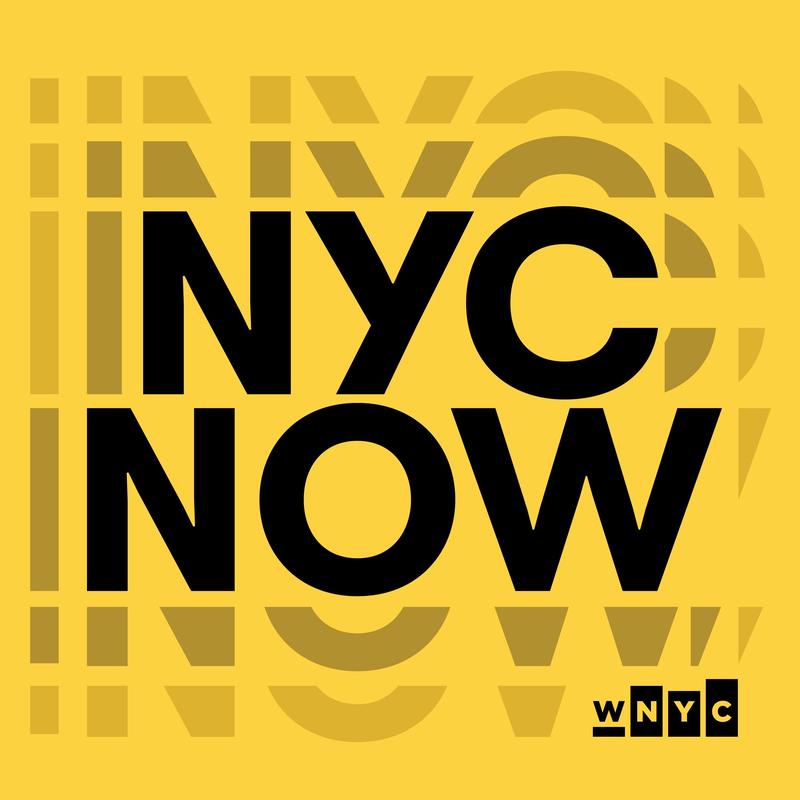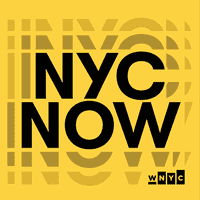Midday News: NYPD to Add Security Cameras in Upper Manhattan, Police Radio Access Bill Advances, and Primary Day Countdown Begins

[music]
Janae Pierre: Welcome to NYC Now, your source for local news in and around New York City from WNYC. It's Monday, June 9th. Here's the midday news from Michael Hill.
Michael Hill: The NYPD says it's installing dozens of security cameras in public spaces in Upper Manhattan thanks to a million-dollar federal grant. Police Commissioner Jessica Tisch says they'll help police pursue criminal investigations and prevent crime.
Police Commissioner Jessica Tisch: When people know that the NYPD is watching over the block, it makes them think twice.
Michael Hill: Commissioner Tisch says the NYPD installs high-definition cameras based on crime data, and the cameras run 24 hours, 7 days a week. Officials say the expansion includes 38 locations in several neighborhoods and crews will install the cameras within the next two months.
A bill to protect public access to NYPD radio dispatches is one step closer to becoming law. The State Senate and the State Assembly both passed the Keep Police Radio Public Act last week and now goes to the governor's desk. It's unclear if she intends to sign it. New York State Senate Deputy Majority Leader Mike Gianaris of Queens sponsors the bill. He says the law would open up radio communications to emergency service organizations and professional journalists.
Mike Gianaris: They should be able to continue to monitor this so they can get on-site when activity is taking place and not have to rely only on police accounts after the fact because the dangers of that are obvious to everybody.
Michael Hill: The bill is in response to the police department shielding law enforcement radio frequencies from the public. The NYPD says encrypting radio communications is necessary to keep law enforcement, victims, and witnesses safe. 63 with clouds now. 50/50 chance of showers later on. High temps mid to upper 60s today.
Janae Pierre: Stay close. There's more after the break.
[music]
Michael Hill: With just 15 days until primary day in New York City, it's crunch time for candidates and voters for the next three Mondays. Both WNYC's Brian Lehrer and Brigid Bergen will join us here with what we need to know to get ready to cast our votes. Brigid, are there any deadlines we should be aware of this week?
Brigid Bergin: Oh, yes, Michael, there's a whole bunch of things voters should be aware of today. Specifically, June 9th is the deadline to change your voter registration if you moved. If you're one of those voters who maybe has a place in the Catskills or maybe out on Long Island and you change your registration during those crucial midterm elections, well, if you want to vote in the New York City primary, you need to change it back by today.
It's also the last day of the latest fundraising period. If you get those emails or texts from candidates asking for money, you may get some pretty desperate-sounding asks today. The next date would be Saturday, June 14th. It's a big day for three reasons. It's the last day to register to vote if you are a new voter. It's also the last day to apply online for an early vote by mail ballot. You can still apply in person up until the day before election day. Then Saturday, June 14th is also the first day of in-person early voting and a big reminder that if you are going to do that, make sure you check your poll site before you go out to vote. Those early voting poll sites often change and are different from your election day poll site.
Michael Hill: Some big deadlines there. Another two big dates this week, June 10th and June 12th. Those are the second debates for the Democrats running for New York City Comptroller and Mayor. Brian, you're one of the moderators for both of those. Tell us what you'll be watching for in both of these debates.
Brian Lehrer: Well, good morning, Michael. Good morning, everyone. Given the events of the weekend in LA, I will now be watching for how the mayoral candidates say they would handle the kinds of workplace immigration raids and protests against them, and Trump federalizing and deploying the New York National Guard were the kind of thing to happen here that's happening there.
As mayor of LA, Karen Bass has been on the political front lines there. How would these candidates argue they would be better than each other at handling a similar situation here? That of course, in addition to the core local issues like affordable housing, education, public safety, and more that are always on the radar. Fasten your seatbelts. Two hours, seven candidates. We'll do our best to strike the balance between hitting enough important issues and going into enough depth to make their answers meaningful.
The comptroller debate is first. That's tomorrow night at 7:00 between City Council Finance Committee Chair Justin Brannan and Manhattan Borough President Mark Levine. They both say they want to guard the city's fiscal soundness, help finance affordable housing, protect the city from Trump defunding, divest the pension funds from socially destructive things, and a few other items. They agree on a lot. I'll be looking for who makes the case that they can be the more effective at those things.
Michael Hill: Brian, how can listeners follow along?
Brian Lehrer: Tuesday and Thursday at 7:00 PM on WNYC FM and AM and live streaming at wnyc.org, or if you have Spectrum cable in the city, you can watch on New York 1.
Michael Hill: Now, Brigid, you've been out talking to voters. Are they starting to tune into the races?
Brigid Bergin: Yes, Michael, although I was really surprised this weekend. I was out both Saturday and Sunday talking to voters, and the number of voters I encountered who were still undecided really was kind of shocking. I was talking to voters out in Southeast Queens, asking them about what issues mattered to them most and whether there was a candidate who really was speaking to those issues. If voters did have a candidate, it was often Andrew Cuomo. I also encountered people like Yvonne James. She's 70 years old, living in Queens Village. She works as an auditor. Here's what she is looking for in a candidate.
Yvonne James: To improve our community right now and to make benefits available for senior citizens in my area so we can afford to stay in the homes we live in.
Brigid Bergin: I should note that the area in Queens where James lives is an area where there are a lot of people who are homeowners more than renters, so it's interesting to hear her talk about that issue. At this point, she says she still hasn't decided which candidate is speaking to these issues effectively enough yet. I also spoke to voters like Jeffrey Gurley, a retired NYPD officer, who told me it's not just the candidates that he's trying to figure out at this point.
Jeffrey Gurley: The most important thing of this whole situation is the rank choice is kind of confusing. We got a couple weeks to try to educate people on it. I would say the average voter is very confused.
Brigid Bergin: Michael, so hopefully, Jeffrey's listening this morning because I know the Morning Edition team has a plan to help voters get up to speed on ranked-choice voting.
Michael Hill: Yes, Mr. Gurley needs to tune in if he's not listening. Brian, you've been hearing from callers throughout the primary season. Are there any themes you've heard from them so far?
Brian Lehrer: Sure. People want to know about the perennial New York City issues. Affordable housing, public safety, education, good mass transit, inequality, pedestrian safety from cars and motorized two-wheelers, also the environment. This year, they want to know about mass deportation, anti-Semitism, and Islamophobia, and as connected to Israel and Gaza and how to work with or protect the city from Donald Trump.
Also, there are two front runners in the race, as most of our listeners probably know, if we can believe the polls, who people have been choosing upsides over Cuomo or Mamdani with contrasting styles and views on the issues. We will try to clarify them. I'm sure on this morning show coming up at 10:00, people will have something to say about the LA-type scenario and also about candidate Jessica Ramos, one of those endorsed by the Progressive Working Families Party, shocking almost everyone on Friday by endorsing Cuomo. People are saying, "What?"
Michael Hill: Brian, I want to go to the mayor's debate on Thursday. A lot of candidates, and when you have a lot of candidates, things can tend to get a little unruly with people overtalking each other. What's the format for Thursday?
Brian Lehrer: There is a format. There are rules that have been set. I don't have all the details in front of me, but it gives some structure and also some flexibility to us to both keep things under control and try to get enough depth on some of the responses.
Michael Hill: What about for the comptroller's conversation or debate tomorrow night?
Brian Lehrer: Similar. It's easier with just two candidates, but similar.
Michael Hill: Right. Indeed. Brigid, when you talk to voters, I'm curious about some of the things that they're saying to you. Are people interested in voting? Because apathy is always a big issue. People tend to think sometimes that not much is going to change if I go and vote.
Brigid Bergin: Michael, I was doing two different things this weekend. I went out with a group of canvassers, and those are people who are knocking on doors of potential voters that they think might be interested in the Democratic nominee or the Democratic primary. Then also just talking to voters outside of a church in Southeast Queens. It was interesting. The voters at the doors, I think you sensed a little bit more reluctance. People who either they were totally engaged and knew exactly who they were voting for or they were like, "I don't want strangers at my door," understandably to some degree. I think these next last 15 days are going to be really crucial. These debates may-
Michael Hill: They certainly are.
Brigid Bergin: -really influence some voters.
Michael Hill: Brigid and Brian, pardon me, we'll have to leave it there. We'll be back next week with more. Thanks to you both.
Brigid Bergin: Thank you.
Brian Lehrer: You're welcome.
[music]
Janae Pierre: Thanks for listening. This is NYC Now from WNYC. Check us out for updates every weekday, three times a day, for the latest news headlines and occasional deep dives, and subscribe wherever you get your podcasts.
Copyright © 2025 New York Public Radio. All rights reserved. Visit our website terms of use at www.wnyc.org for further information.
New York Public Radio transcripts are created on a rush deadline, often by contractors. This text may not be in its final form and may be updated or revised in the future. Accuracy and availability may vary. The authoritative record of New York Public Radio’s programming is the audio record.
